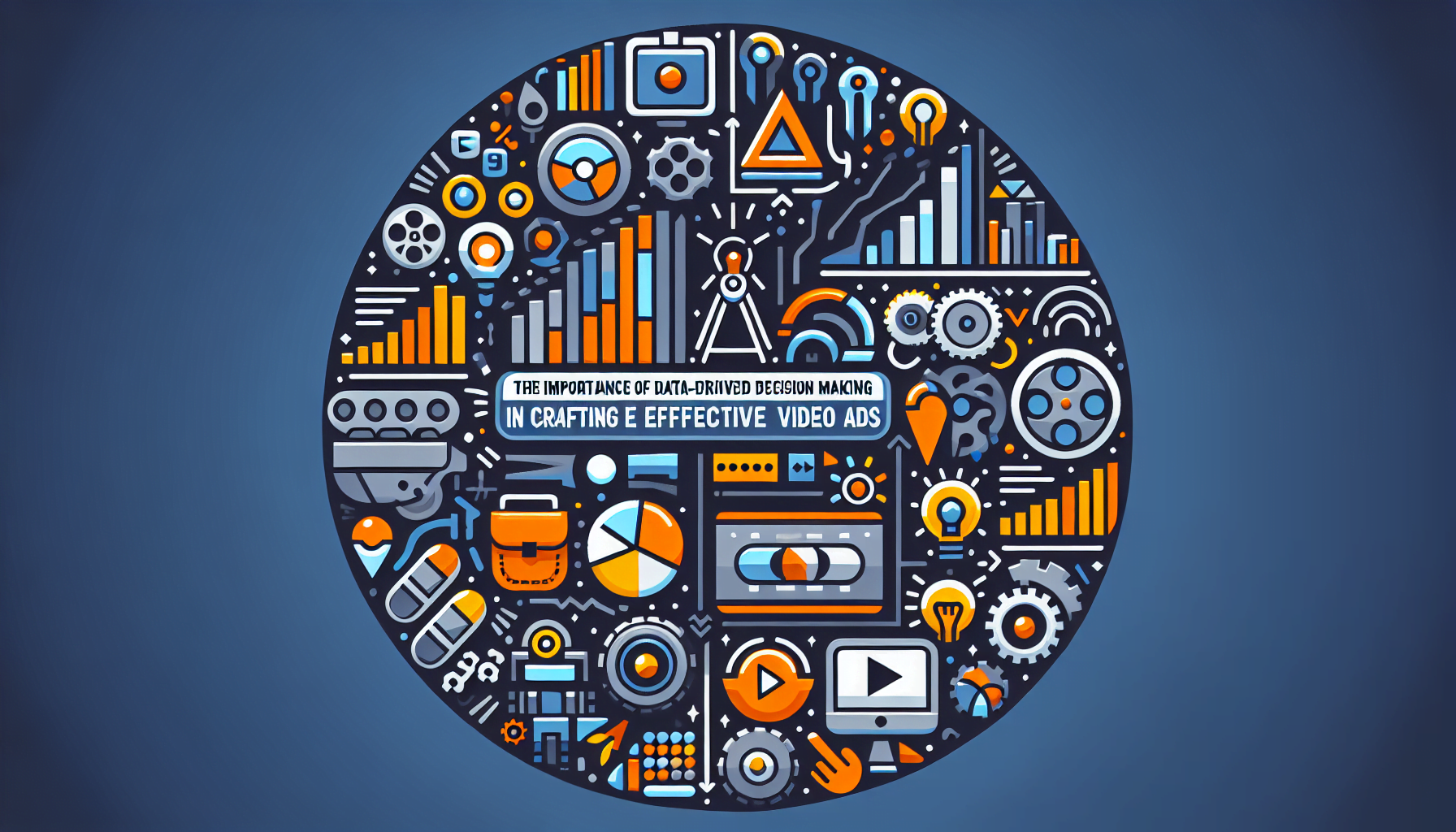5 Ways AI Can Optimize DTC Customer Acquisition
In the fast-paced world of direct-to-consumer (DTC) marketing, staying ahead of the trends is crucial. One trend that has been gaining traction is the use of Artificial Intelligence (AI) to optimize customer acquisition. In this blog, we will explore five ways in which AI can help DTC brands boost their customer acquisition efforts. From leveraging personalized stories to standing out in a crowded market, to utilizing subscription pricing and flexible payment options, AI offers a range of tools and strategies that can take your DTC business to the next level. Join us as we delve into these AI-driven tactics and discover how they can supercharge your customer acquisition game in 2023 and beyond.
16 Direct-to-Consumer (DTC) Trends in 2023
In 2023, the Direct-to-Consumer (DTC) space will witness several trends that can revolutionize customer acquisition. One of the key trends is the use of AI-powered customer segmentation and targeting. By leveraging artificial intelligence, DTC brands can better understand their target audience and personalize their marketing efforts. This level of personalization is crucial for ecommerce success in the increasingly competitive DTC space. Another trend is the implementation of personalized product recommendations using AI algorithms.
These recommendations can enhance the customer experience by providing tailored suggestions based on individual preferences, maximizing customer satisfaction and driving sales. Additionally, chatbots and virtual assistants are becoming increasingly popular in the DTC space for improved customer service. These AI-powered tools can handle customer queries, provide real-time assistance, and create a seamless customer journey. They can also be integrated with social media platforms like Facebook and Twitter to engage with customers on multiple channels. Furthermore, the use of predictive analytics is on the rise, allowing DTC brands to optimize their marketing campaigns and budgets.
By analyzing customer data and market trends, marketers can make data-driven decisions, improving the effectiveness of their marketing efforts. Automated email marketing campaigns based on customer behavior are also gaining traction in the DTC space. By leveraging AI algorithms, DTC brands can send personalized emails at the right time, maximizing engagement and conversions. Moreover, dynamic pricing strategies using AI algorithms can help DTC brands stay competitive in the market. By analyzing market trends and demand, brands can adjust prices in real-time, offering customers the best deals possible and driving revenue growth. With the continuous advancements in AI and machine learning, DTC brands have an opportunity to leverage these technologies to enhance the customer experience, optimize marketing efforts, and drive business growth in the DTC space.
What is a Direct-to-Consumer Model?
A Direct-to-Consumer (DTC) model is a business strategy where companies sell their products or services directly to consumers without intermediaries. This approach allows companies to have full control over their brand, customer experience, and pricing. By eliminating middlemen, DTC brands can offer competitive prices, gather valuable customer data, and cultivate stronger relationships with their target audience.
Top 16 Direct-to-Consumer Trends in 2023
In 2023, the DTC space will witness various trends shaping customer acquisition strategies. One of the top 5 most beneficial AI to use in the DTC space is AI-powered customer segmentation and targeting. AI algorithms analyze extensive customer data to identify the most effective channels and audience for acquiring new customers. Personalization plays a crucial role in DTC customer acquisition, and AI algorithms provide personalized product recommendations to enhance the customer experience and increase conversion rates. Chatbots and virtual assistants powered by AI enhance customer service by providing quick and accurate assistance. Predictive analytics optimize marketing campaigns and budgets by predicting customer behavior and trends. Lastly, automated email marketing campaigns based on customer behavior engage DTC brands effectively.
1. Inflation causes customers to tighten their belts
In today’s challenging economic climate, customers are tightening their belts due to inflation. To address this, businesses can rely on artificial intelligence (AI) to optimize customer acquisition in the DTC space. AI algorithms enable precise targeting of potential customers, while machine learning analyzes customer data for personalized marketing campaigns. Chatbots and virtual assistants enhance the user experience by providing instant customer support. Employing AI-driven predictive analytics allows businesses to optimize marketing strategies in real-time based on identified trends. By leveraging AI-powered recommendation engines, businesses can increase conversion rates by suggesting personalized products/services.
2. More traditional retailers will adapt DTC models
Traditional retailers are embracing the Direct-to-Consumer (DTC) model, adapting to the changing landscape of e-commerce. Leveraging AI, these retailers can accurately identify and target potential customers, optimizing their customer acquisition strategies. By analyzing data, predicting customer behavior, and utilizing AI-powered chatbots, they create personalized customer experiences and enhance conversion rates. Automation and streamlining of marketing processes through AI save time and resources. Furthermore, they can analyze customer feedback and sentiment to improve products and services. Traditional retailers are thus leveraging AI to stay competitive in the DTC space.
3. Personalized stories are the key to standing out
In the highly competitive DTC space, personalization is the key to standing out. By harnessing the power of AI, you can create customized marketing campaigns that resonate with your target audience. With AI-driven chatbots and customer support systems, you can provide instant assistance and enhance your customer experience. Analyzing customer behavior and preferences through AI enables you to offer personalized product recommendations, increasing conversions. Furthermore, optimizing online advertising campaigns using AI algorithms ensures you’re reaching the most relevant audience for your brand.
4. Subscription pricing will remain popular
Subscription pricing models have gained significant traction in the Direct-to-Consumer (DTC) space over the past year. With the rise of e-commerce and DTC brands, subscription pricing offers a convenient and personalized way for customers to access products and services. It allows customers to receive regular shipments of their favorite products, creating a sense of convenience and loyalty. Moreover, subscription pricing models have become more enticing through the implementation of AI-driven personalization techniques.
One of the key benefits of subscription pricing is the ability to optimize customer acquisition strategies by leveraging the power of AI. With AI analysis of customer data, DTC companies can identify the most effective channels and messages for acquiring new customers. Furthermore, AI-powered chatbots can provide personalized recommendations and assistance, significantly increasing conversion rates. By harnessing AI algorithms, businesses can continuously analyze and optimize their subscription pricing models in real-time, resulting in improved ROI and overall business performance.

5. Wider adoption of BNPL and other flexible payment options
The increasing popularity of BNPL and other flexible payment options is transforming the DTC space. AI-driven advancements enable personalized recommendations and assistance, enhancing the customer journey and driving conversion rates. AI algorithms optimize advertising campaigns, ensuring the right message is delivered to the right audience at the right time. Moreover, AI analyzes customer behavior and preferences to provide customized product recommendations, pricing, and offers, resulting in improved conversion rates. With AI’s automation capabilities, businesses can streamline lead nurturing and engagement, optimizing their customer acquisition strategies and fueling revenue growth.
6. Lesser dependence on paid advertising
Reducing reliance on paid advertising has become a priority for DTC brands. In the fast-paced world of e-commerce, utilizing AI has proven to be a game-changer. By leveraging AI, marketers can identify the most effective marketing channels to reach potential customers. The implementation of AI-powered chatbots offers personalized recommendations and assistance, resulting in higher conversion rates. Moreover, AI algorithms enable the creation of targeted marketing campaigns, tailored to specific audience segments. Automation of tasks like lead scoring and email marketing empowers marketers to allocate more time to strategic planning and innovative initiatives. Improved website and landing page designs, achieved through AI optimization, enhance the overall user experience and boost conversion rates. In addition, analyzing customer feedback and sentiment analysis allows for continuous improvement of the customer acquisition process, leading to greater campaign success.
7. Increased importance on Zero-Party or First-party data
In the rapidly evolving DTC space, the increased importance of zero-party or first-party data is a game-changer. Marketers are now focusing on collecting and analyzing data directly from their customers, thanks to the power of AI. This strategic move allows DTC brands to create targeted marketing strategies that resonate with their audience. From personalized customer experiences to effective customer acquisition, AI is transforming the way businesses operate. By automating repetitive tasks, AI empowers marketers to dedicate more time to strategy and engaging with customers. With AI algorithms optimizing advertising campaigns in real-time and enhancing the customer journey with personalized recommendations, the possibilities for DTC brands are endless.
8. DTC Brands offering offline experiences
DTC brands are leveraging AI technology to enhance the customer journey and drive engagement. By analyzing customer data, these brands can create targeted marketing campaigns, optimizing their pricing strategies in real-time. AI-powered chatbots provide instant support, improving the overall customer experience. Through personalized email marketing and social media monitoring, DTC brands can increase engagement rates and identify emerging trends. With AI algorithms and automation, these brands stay competitive in the evolving e-commerce landscape, offering personalized assistance and tailored messaging. By incorporating AI in their marketing efforts, DTC brands are able to reach new customers and drive revenue growth.
9. Continued fascination with NFTs make them great for loyalty rewards
Continued fascination with Non-Fungible Tokens (NFTs) has made them a valuable tool for loyalty rewards in the Direct-to-Consumer (DTC) space. The unique digital assets offered by NFTs provide a novel way to engage and reward loyal customers, without relying solely on traditional methods. By incorporating NFTs into loyalty programs, DTC brands can create a sense of exclusivity and collectability, appealing to the tech-savvy and trend-conscious consumers. NFTs can be used as digital vouchers, exclusive access passes, or even virtual merchandise, giving customers a tangible and unique reward for their loyalty. This innovative approach not only enhances customer retention but also drives new customer acquisition by leveraging the hype surrounding NFTs.
10. Increased use of SMS marketing to reach customers
SMS marketing has become increasingly prevalent in the direct-to-consumer (DTC) space, thanks to the growing popularity of mobile phones. Leveraging this channel allows businesses to engage with customers directly and promote their products and services through targeted, personalized text messages. With the addition of AI technologies, the effectiveness of SMS marketing campaigns has skyrocketed. AI-powered algorithms enable marketers to analyze customer data, identify target audiences, and optimize their campaigns accordingly. Moreover, AI-powered chatbots enhance the customer experience, assist with lead generation, and streamline the customer acquisition process. By leveraging AI, businesses can deliver tailored advertisements and promotions to increase the effectiveness of their SMS marketing efforts.
11. Resurgence of plain-text emails
The resurgence of plain-text emails is a growing trend in the DTC space. Marketers are realizing the importance of simplicity and personalization in their email marketing efforts. By sending plain-text emails, businesses can create a more intimate and personalized connection with their customers. Instead of flashy graphics and complicated designs, plain-text emails focus on delivering a straightforward message that resonates with the recipient. This stripped-down approach has proven effective in increasing open rates and engagement. Moreover, plain-text emails also offer a more authentic and genuine feel to customers. In a world saturated with marketing messages, plain-text emails cut through the noise and provide a refreshing experience. By adopting this strategy, DTC brands can stand out in the inbox and build stronger relationships with their audience. So, don’t underestimate the power of simplicity when it comes to your email marketing strategy. Embrace the resurgence of plain-text emails and reap the benefits of a more personal and engaging customer communication channel.
12. Balance between wholesale and DTC channels
AI plays a crucial role in balancing wholesale and DTC channels in the e-commerce space. By analyzing customer data, AI helps identify the most effective channels for DTC customer acquisition, optimizing marketing efforts for business owners. Automation and streamlining are made possible by AI, saving valuable time and resources in the customer acquisition process. With AI-powered algorithms, ad targeting and personalized messaging are optimized, leading to increased conversion rates. By tracking and measuring the success of DTC customer acquisition strategies, businesses can continually improve and find the perfect balance.
13. Customer-Centric Product Returns Policies and Processes
Customer-Centric Product Returns Policies and Processes are integral to the success of DTC brands in the e-commerce space. By leveraging AI, dtc brands can enhance customer experience, drive revenue growth, and outperform traditional retailers. The implementation of AI helps in understanding customer behavior, improving customer acquisition strategies, and personalizing marketing campaigns. With AI-powered chatbots, businesses can provide seamless customer service across multiple channels. Furthermore, AI algorithms optimize digital advertising and leverage social media platforms such as Facebook, Instagram, and Twitter for targeted marketing efforts. By incorporating AI-driven recommendation engines, dtc brands can enhance customer satisfaction and retention.
Conclusion
In conclusion, AI has the potential to revolutionize customer acquisition in the DTC space. By leveraging AI-powered tools and technologies, brands can optimize their marketing strategies, personalize their messaging, and streamline their customer acquisition processes. From predicting customer behavior to automating personalized recommendations, AI can help brands identify and target the right audience, engage them with relevant content, and ultimately drive conversions. If you want to learn other ways on how AI can optimize DTC customer acquisition, check out our website generAI!





